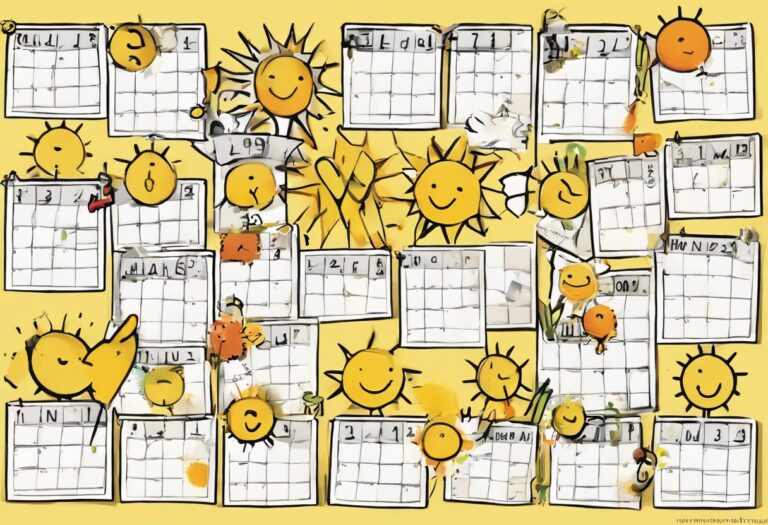How to Ask for a Call Professionally (With Samples)

In the professional world, knowing how to request a call through email is key. This article provides ten different ways to do just that, ensuring you sound polite and respectful. Each option is broken down to explain when and with whom it works best. From formal to informal settings, these phrases will help you get the conversation started right.
10 Professional Ways to Ask for a Call
Here are the ten most common ways to professionally request a call in an email setting, without sounding too formal:
- Could we schedule a call to discuss this further?
- Would you be open to a quick call to talk about this?
- Can we hop on a call to dive deeper into this matter?
- Is it possible to arrange a call for a more detailed discussion?
- I think a call might help us sort this out more efficiently. Can we arrange one?
- Are you available for a call to discuss the next steps?
- Can I call you to discuss this in more detail?
- Would a brief call work for you to go over the details?
- Let’s have a call to streamline our ideas. Does that sound good?
- Could I reach out to you via phone to clarify some points?
1. Could we schedule a call to discuss this further?
This alternative is polite and implies flexibility, making it less direct and therefore less imposing than simply stating, “I look forward to your call.” It suggests that the initiative for the call is open for discussion and requires confirmation from the other party.
This phrase is particularly suited for emails where the topic discussed requires a more in-depth conversation. It’s best used with professionals who are already involved in the matter at hand or with new clients where a softer approach is preferred. The medium most appropriate for this would be email, given its formal nature.
Email example:
Dear Ms. Thompson,
Following our recent email exchange, could we schedule a call to discuss this further? I believe a brief conversation could provide us with the opportunity to clear any uncertainties.
Best regards,
Emily
2. Would you be open to a quick call to talk about this?
This option is slightly more informal than the first, inviting discussion in a friendly manner. It also implies the call would not take much of the recipient’s time, which can be appealing.
This is suitable for situations where the relationship with the recipient has some established rapport, making the request appear as a casual invitation rather than a demand. This can be effectively used with colleagues or clients with whom you have a somewhat informal or friendly relationship. It works well through emails or direct messaging platforms.
Email sample:
Hi Mark,
I was reviewing our project outline, and a question popped up. Would you be open to a quick call to talk about this? I think it would help clarify my point.
Best,
Laura
3. Can we hop on a call to dive deeper into this matter?
This phrase strikes a balance between being informal and professional. It suggests an eagerness to explore the subject matter in more detail without assuming the recipient’s availability.
This alternative fits well with team members or stakeholders where there is already an understanding of the project’s complexity. It’s ideal for instances requiring more extensive discussion or brainstorming. Email is the recommended communication channel for this approach, given its professional backdrop.
Here’s an example:
Good morning Sara,
Given the intricacies of our current project, can we hop on a call to dive deeper into this matter?
Warm regards,
Tom
4. Is it possible to arrange a call for a more detailed discussion?
This option is more formal and places the decision to have a call solely in the hands of the recipient, showcasing respect for their time and preferences.
It’s especially effective when addressing senior colleagues, new clients, or other contacts where a higher level of formality is necessary. This expression is more suited for email communication, emphasizing the professional setting.
Email sample:
Dear Professor Allen,
Regarding your latest publication, is it possible to arrange a call for a more detailed discussion? I have several points I’d love to get your insight on.
Sincerely,
Jenna
5. I think a call might help us sort this out more efficiently. Can we arrange one?
This phrase presents the call as a mutual benefit rather than a requirement, which can encourage a positive response. The polite phrasing suggests collaboration and teamwork.
This approach is well-suited for communications with team members or partners where the goal is to enhance efficiency in problem-solving. It’s applicable in both a formal and informal setting but most effective in emails, where the need for detailed discussion is clear.
Example:
Hello Jake,
After reviewing the latest project files, I think a call might help us sort this out more efficiently. Can we arrange one?
Best,
Olivia
6. Are you available for a call to discuss the next steps?
This wording implies progression and forward movement, ideal when wrapping up phases of a project or planning. It’s formal yet offers the recipient the flexibility to decide on their availability.
Perfect for conversation with clients or team members where defining next steps is critical. This phrase works well in emails intended to keep projects moving forward while respecting the recipient’s schedule.
Here’s an example:
Dear Benjamin,
As we’re nearing completion of this phase, are you available for a call to discuss the next steps? I believe it would greatly benefit our timeline.
Looking forward to hearing from you,
Michelle
7. Can I call you to discuss this in more detail?
By asking directly, this approach is more straightforward but still remains polite. It conveys the need for an in-depth conversation and respects the recipient’s decision to accept or decline.
This phrase is ideal for when detailed clarification is needed and the conversation may be too complex for email. It’s best used with individuals who appreciate directness, such as busy professionals or when time is of the essence, and is most suitable for email communication.
Email example:
Hi Robert,
In light of your recent feedback, can I call you to discuss this in more detail? I think it would expedite our decision-making process.
Thanks,
Diane
8. Would a brief call work for you to go over the details?
This question is polite and implies the call will be concise, which can be appealing for busy recipients. It positions the call as a matter of efficiency and effectiveness.
This alternative is suited for communications where time is limited, and the matter at hand can be quickly addressed. It’s particularly effective with colleagues or clients known for their busy schedules. Email or text messages are the appropriate channels for this communication.
Example:
Good morning Carol,
I've prepared the final report. Would a brief call work for you to go over the details?
Best,
Henry
9. Let’s have a call to streamline our ideas. Does that sound good?
This phrase is informal and collaborative, suggesting a call as a way to unify thoughts and directions efficiently. It is implicitly polite and encourages a team-oriented approach.
It is best used among team members or with clients in a creative process where bringing ideas together is crucial. This phrase works well in less formal emails or in a collaborative working environment, fostering a sense of partnership.
Email sample:
Hey team,
As we move into the next phase, let's have a call to streamline our ideas. Does that sound good?
Cheers,
Alex
10. Could I reach out to you via phone to clarify some points?
This sentence is both formal and polite, explicitly stating the mode of communication while leaving room for the recipient to decline. It assumes nothing about the recipient’s preference or availability.
This alternative is most appropriate when clarity is the primary goal, and the topic at hand may be too nuanced for written communication. It’s fitting for professional relationships where details matter, like with consultants, clients, or higher management. Email is the preferred medium for this request.
Email example:
Dear Mr. Peterson,
Following up on our project discussion, could I reach out to you via phone to clarify some points? I believe it would ensure we're on the same page.
Warmest regards,
Elena
Final Thoughts
Choosing the right words when asking for a call can make a big difference in professional communication. The ten alternatives provided here offer flexibility and politeness, fitting various situations and recipients well. Whether through email or text, using these suggestions can help enhance clarity and cooperation.






